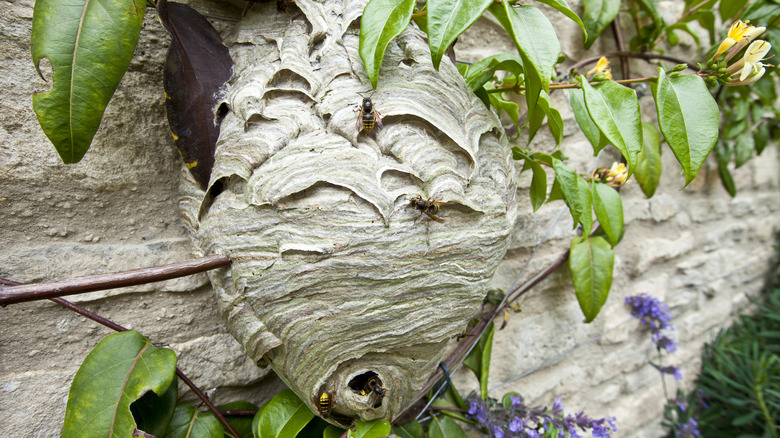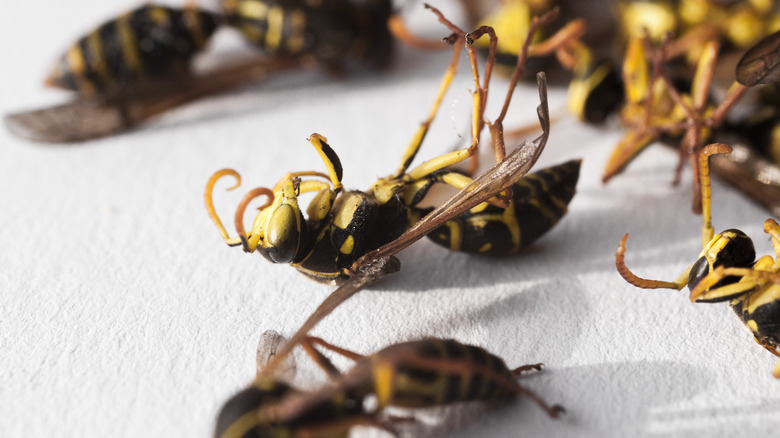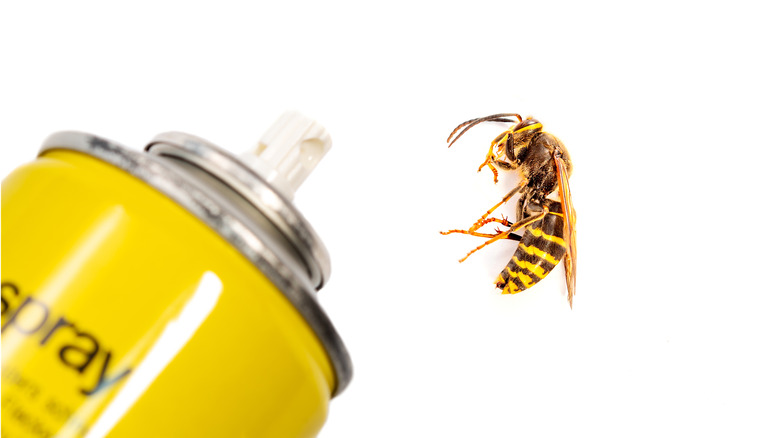The Right Time To Spray A Wasp Nest On Your Property
For the most part, having wildlife around your home can be an enjoyable experience. From watching the birds you worked hard to attract to your garden to seeing baby bunnies frolicking around the yard, nature is filled with plenty of delight and beauty. However, there are some members of the animal and insect kingdom that are not just annoying but could pose a real threat to your family.
Whether it be curious pets or children, a wasp nest in the vicinity of your home could lead to a sting or worse, and a visit to the hospital if someone is allergic. In fact, according to Pet Poison Helpline, wasp stings can sometimes be toxic to pets. That means it's important to get rid of wasps. Depending on the location of a wasp or hornet nest, eradicating the critters living in it, and possibly removing the nest altogether, should be high on your priority list.
But when is the best time to spray that nest? This isn't one of those projects you can just fit in when you have the time — strategy is key when it comes to both safety and ensuring you get rid of those pesky stingers for good.
The best time to spray that wasp nest
When dealing with a wasp nest, you really want to get in there at the onset of spring when the nest is mostly empty aside from the queen, according to Sherlock Maintenance. But, you still want to douse the nest in wasp-killing bug spray. As Home Inspection Insider notes, there's a secondary queen ready to take her place, and a wasp colony will still move into that nest even with the queen missing.
To get the entire nest of pesky insects all at once, and if you've missed your early spring opportunity, Sherlock Maintenance says to rise and shine early to do your spraying. In fact, you want to be early enough in the morning that the daylight hasn't begun to roust the wasps from their sleep. Whatever you do, stay away from bright white light, like from a flashlight, because it'll make them mad!
You'll want to spray quickly and rush for cover (as in, behind the closed door of your home). For some added safety, Do It Best suggests covering as much of your body with clothing as possible and perhaps wearing a beekeeper's mask for extra precaution. Also, invest in a spray that can reach a few feet so you can stay as far away from the nest as possible.
How does wasp spray work?
If you're curious as to how wasp spray manages to eradicate all those insects deep inside the nest, Pest Pointers has the details. Not only is it that powerful push from the can that makes wasps drop like flies when you spray them, but the combination of chemicals inside, which is designed to paralyze them by overwhelming their nervous systems. The spray literally stops them in their flight path and causes them to fall to their death.
While the bug spray won't have the same effect on a human, you still want to take precautions when using these chemicals by wearing a mask. If you're doing a lot of spraying it will help keep you from breathing in too much of the mist. You also want to watch the angle of the wind when you're spraying, not only to avoid blowback into your face but to ensure the spray is hitting right where it needs to. The wetter the nest, the better.


